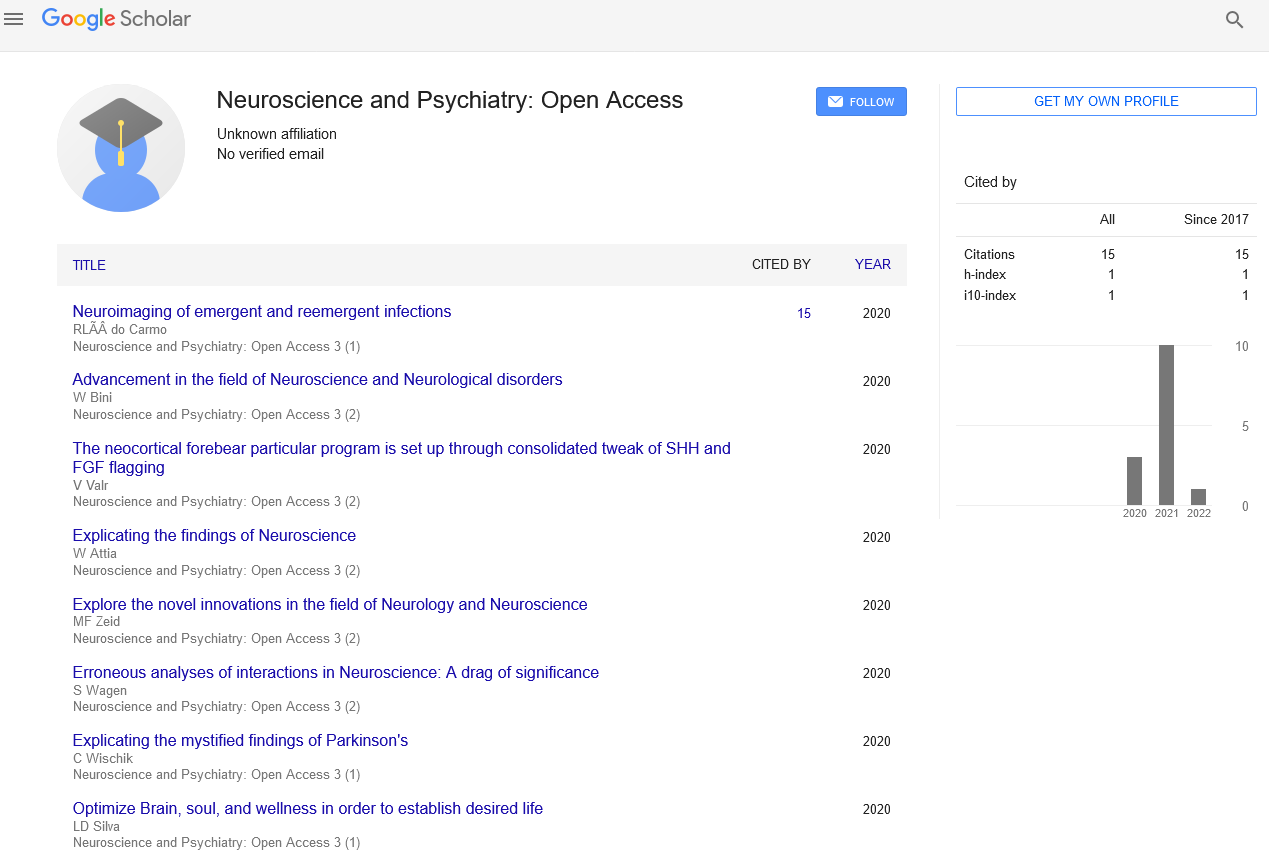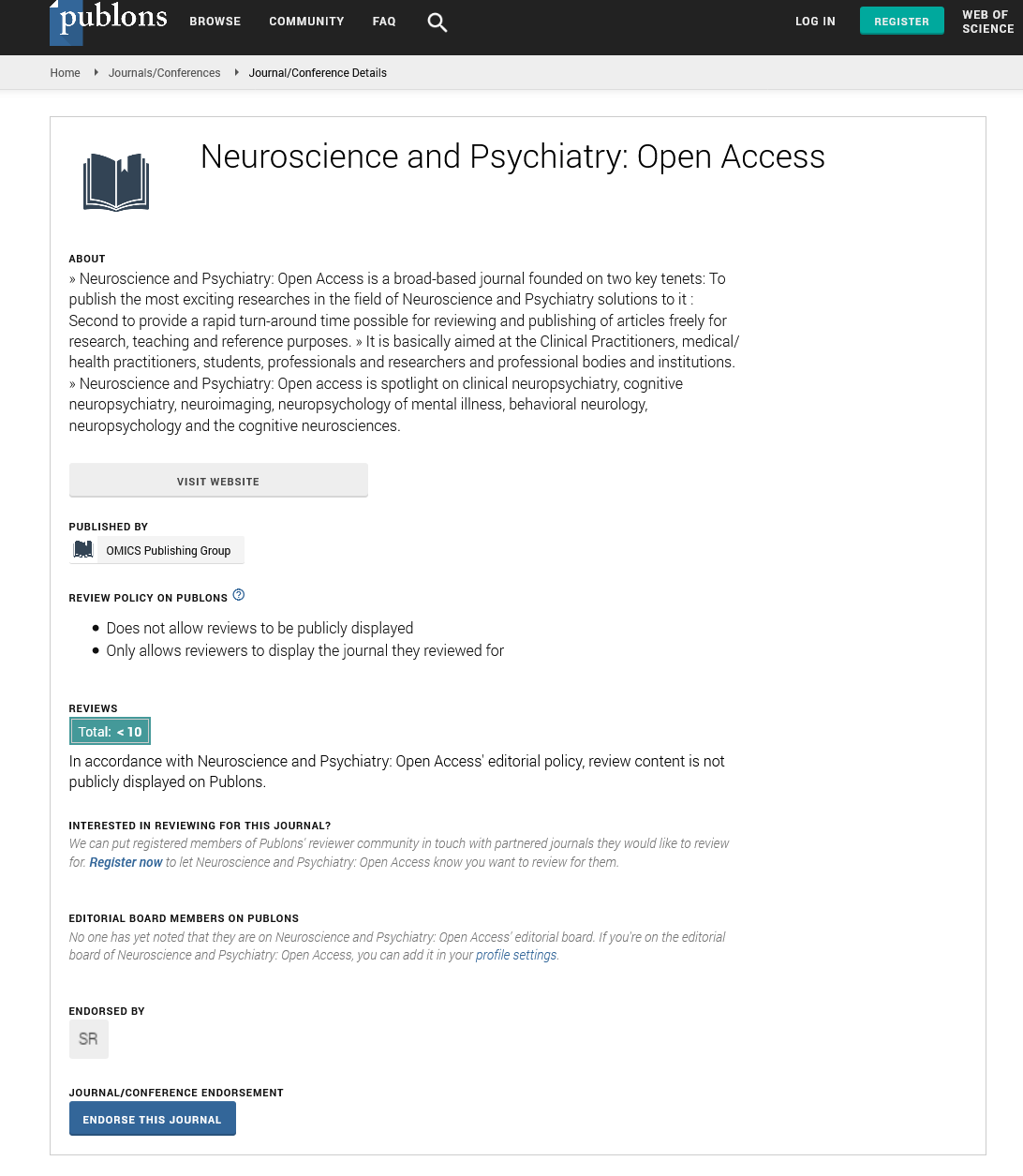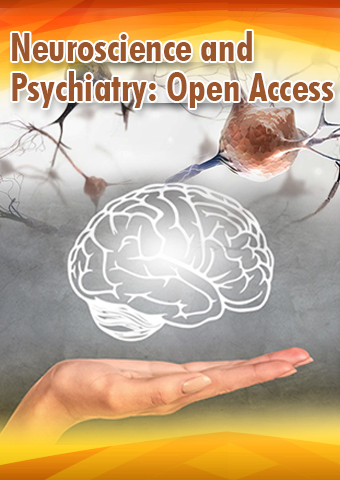Perspective - Neuroscience and Psychiatry: Open Access (2023) Volume 6, Issue 6
Unraveling the Effects of Alzheimer's Disease and Autism on the Brain
- Corresponding Author:
- Barbara Sahakian
Department of Psychiatry and Neuroscience, University of Cambridge, Cambridge, UK
E-mail: barbara@cam.ac.uk
Received: 31-10-2023, Manuscript No. NPOA-23-119646; Editor assigned: 03-11-2023, PreQC No. NPOA-23-119646 (PQ); Reviewed: 17-11-2023, QC No. NPOA-23-119646; Revised: 23-11-2023, Manuscript No. NPOA-23-119646 (R); Published: 04-12-2023, DOI: 10.47532/npoa.2023.6(6).152-153
Introduction
Alzheimer’s disease and autism spectrum disorder are two distinct neurological conditions, each with its unique characteristics and challenges. Yet, both conditions have a significant impact on the brain, leading to various cognitive and behavioral changes. In this article, we will explore the effects of Alzheimer’s disease and autism on the brain, shedding light on the intricate processes that underlie these conditions and how they affect individuals’ lives.
Description
Alzheimer’s disease is a progressive neurodegenerative disorder primarily affecting the elderly population. It is characterized by the accumulation of abnormal proteins, including beta-amyloid plaques and tau tangles, in the brain. These pathological changes lead to the loss of neurons and synaptic connections, resulting in cognitive decline. Here are some key effects of Alzheimer’s disease on the brain:
Neurodegeneration: Alzheimer’s disease leads to the progressive loss of brain cells, especially in regions associated with memory and cognitive function, such as the hippocampus and neocortex. This neurodegeneration is responsible for the gradual decline in memory and thinking abilities.
Reduced brain volume: As the disease progresses, brain volume decreases, with specific regions, including the frontal and temporal lobes, showing significant atrophy. This reduction in brain volume is associated with the severity of cognitive impairment.
Impaired communication: Alzheimer’s disrupts the communication between brain cells, as the accumulation of beta-amyloid plaques and tau tangles interferes with synaptic transmission. This results in problems with memory, reasoning, and language.
Emotional and behavioral changes: Beyond cognitive decline, Alzheimer’s disease often leads to emotional and behavioral changes, such as depression, agitation, and apathy, which can significantly affect the quality of life for both patients and their caregivers.
Autism spectrum disorder and its impact on the brain
Autism Spectrum Disorder (ASD) is a developmental disorder that manifests in early childhood, affecting social interaction, communication, and behavior. While it is primarily characterized by its behavioral features, research has uncovered distinctive neurobiological differences in individuals with ASD. Here are some effects of autism on the brain:
Altered brain connectivity: Studies using neuroimaging techniques have shown that individuals with ASD often exhibit atypical patterns of brain connectivity. Specifically, there may be over connectivity in certain brain regions and under connectivity in others. These connectivity differences may contribute to the challenges in social interaction and communication that are common in autism.
Enlarged brain size: Some individuals with ASD have been found to have larger brain volumes, particularly in the early years of life. This enlargement is attributed to the excessive growth of white matter in the brain, which may be associated with the sensory sensitivities often seen in autism.
Abnormalities in key brain regions: Brain regions such as the amygdala, which plays a crucial role in emotional processing, and the prefrontal cortex, responsible for higher order cognitive functions, may exhibit structural and functional differences in individuals with ASD.
Neuronal and synaptic changes: Some studies suggest that individuals with autism may have alterations in the number and distribution of neurons and synapses. These changes could impact information processing and the ability to adapt to novel situations.
Overlapping themes: Memory and social interaction
While Alzheimer’s disease and autism spectrum disorder differ significantly in their clinical manifestations, there are some overlapping themes in how they affect the brain. Two critical areas that are impacted in both conditions are memory and social interaction.
Memory: In Alzheimer’s disease, memory impairment is a hallmark feature. The loss of neurons and synaptic connections leads to difficulties in forming new memories and recalling past experiences. In contrast, individuals with autism may have memory difficulties related to the way they process and remember social information and social interactions.
Social interaction: Autism spectrum disorder is primarily characterized by social challenges, including difficulty with understanding social cues, maintaining eye contact, and engaging in reciprocal social interactions. In Alzheimer’s disease, social interactions become increasingly impaired as cognitive decline progresses, ultimately leading to a loss of recognition of loved ones and difficulty in maintaining relationships.
Conclusion
Alzheimer’s disease and autism spectrum disorder are distinct neurological conditions, each with its unique impact on the brain. Alzheimer’s leads to neurodegeneration, memory loss, and cognitive decline, primarily affecting older adults. In contrast, autism spectrum disorder is a developmental condition that results in atypical brain connectivity, altered brain regions, and challenges in social interaction and communication.
Understanding the effects of these conditions on the brain is crucial for the development of effective treatments and interventions. Ongoing research in both fields seeks to unravel the complexities of these conditions, with the ultimate goal of improving the quality of life for those affected by Alzheimer’s disease and autism.


